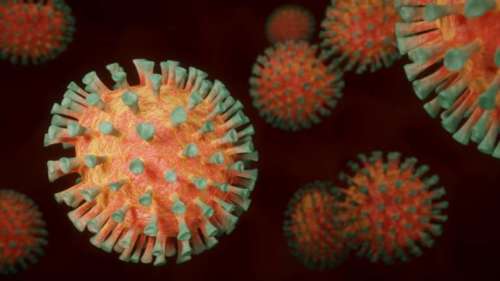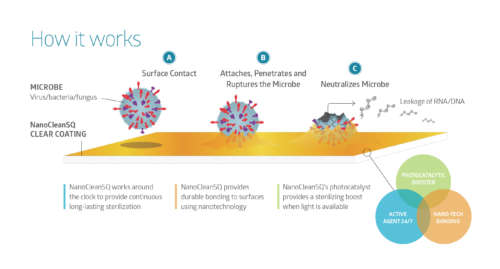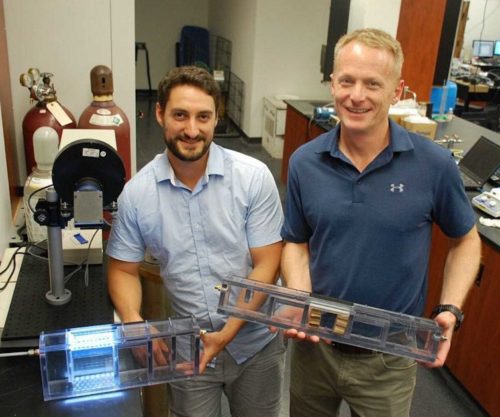
A surface coating that kills viruses upon contact, like the COVID-19-causing coronavirus, and that lasts for weeks is based on innovation developed by the University of Guelph and Guelph-based company EnvisionSQ.
This self-sterilizing nano-coating, called NanoCleanSQ, is among the latest Canadian technologies to receive funding from the government’s Next Generation Manufacturing Canada program. The program is aimed at developing and producing new, in-demand technologies, equipment and medical products to fight the COVID-19 pandemic.
SARS-CoV-2, the virus that causes COVID-19, can live on surfaces for upwards of 72 hours, increasing the threat of spread. NanoCleanSQ is a clear coating that when applied to surfaces kills 99.9 per cent of viruses and bacteria. Its germ-fighting power is fuelled by light and can provide longer protection against surface-to-contact transmission than conventional sterilizers.

It can be used on high-touch surfaces such as plastic chairs, doorknobs and handrails to reduce the spread of COVID-19, said U of G engineering professor Bill Van Heyst, who helped develop the technology.
The technology received coverage from CTV News and CHCH News.
“There is tremendous opportunity for the application of NanoCleanSQ in hospitals, long-term care facilities, day cares, public transit and other public spaces where transmission of SARS-CoV-2 has been more prominent. It will have a direct impact on helping protect front-line workers and expedite the return to normalcy.”
NanoCleanSQ is a transformation of a novel air pollution removal technology called SmogStop developed by Van Heyst and EnvisionSQ that can clean smog, industrial pollutants, cannabis odour and other airborne chemicals from the air.
The technology uses a photocatalyst, or light-activated coating of chemicals, that break down pollutants into harmless elements like nitrogen and oxygen.
The SmogStop photocatalytic coating technology has been tested in highway noise barriers along Highway 401 with positive results.

“We always knew that our SmogStop pollution removal technology had the ability to kill bacteria and viruses, but it was not optimized for this purpose,” said Scott Shayko, CEO of EnvisionSQ. “We specifically reformulated SmogStop to help society combat the COVID-19 pandemic,”
The funding provided by the federal government will be used to establish the first production facility of NanoCleanSQ at U of G.
“University of Guelph is proud to be at the forefront of research and innovation that is being used to combat the COVID-19 pandemic” said Malcolm Campbell, vice-president (research). “Prof. Van Heyst’s exceptional contribution to EnvisionSQ’s brilliant COVID-19-combatting innovation exemplifies the University of Guelph approach toward creating impactful, real-world solutions that improve life.”
Contact:
Prof. Bill Van Heyst
bvanheys@uoguelph.ca